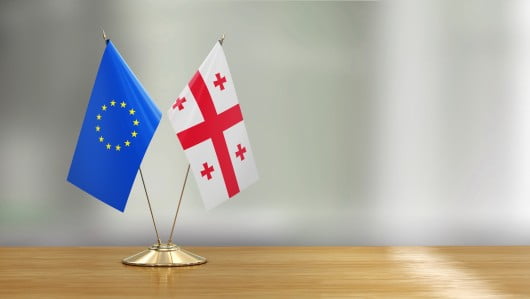It is important to lower Georgia’s ambitions and “manage expectations” because you will not “get a yes” in the planned 2024 EU membership application, MEP Marina Kaljurand said at a May 27 panel discussion hosted by Euractiv, Brussels-based pan-European titled “Georgia’s road to the EU: what’s next?”
MEP Kaljurand (S&D, Estonia), who chairs the European Parliament’s Delegation for relations with the South Caucasus said Georgia should focus on sectoral integration instead of applying for membership, a process she said requires political consensus within the EU on enlargement, which is not “there yet.”
The lawmaker said Georgia’s approach of penning new strategies on digital and green development, and climate change is “excellent” for further aligning with the EU.
“Closer cooperation in different sectors can benefit much to both sides than mere membership,” she added.
The failure to adopt constitutional reforms in 2019, and the political crisis that ensued after the 2020 parliamentary vote was a “reality check” for many in the EU, the MEP said, highlighting that previously the 27-bloc was used to the fact that Georgia was “the best in class” of the Eastern Partnership.
Moving forward, MEP Kaljurand stressed, all opposition MPs should take up their mandates and begin working on constitutional and judicial reforms together with the ruling Georgian Dream party and the civil society. Georgia will have “full support” at the European Parliament as long as it delivers on the democratic reforms, she said.
- Amid Criticism, High Council of Justice Elects Four Judge-Members
- Parliament Speaker Refuses Diplomats’ Appeal to Suspend Judiciary Appointments
Another participant in the discussion, Luc Devigne of the European External Action Service, underscored that Georgia needs to follow through with electoral and judicial reforms, with the latter having “still a long way to go.” He stressed the importance of an accountable judiciary in the country, with the means to “remedy” the possible existence of incompetent or corrupt judges.
Unfortunately, we saw a number of appointments that were not going in the right direction, he said regretfully, referring to the much-criticized election of four judge members to the High Council of Justice, a body that oversees the judiciary in Georgia.
Devigne, who serves as the Deputy Managing Director for Russia, Eastern Partnership, Central Asia, Regional cooperation, and OSCE at the EEAS, stressed that Georgia must “build a case of a functioning democracy” for the EU to take the relationship forward. “Functioning means that yes, there are differences, debates, oppositions, but this should be dealt through institutions, not outside [them],” he added.
This post is also available in: ქართული (Georgian) Русский (Russian)

